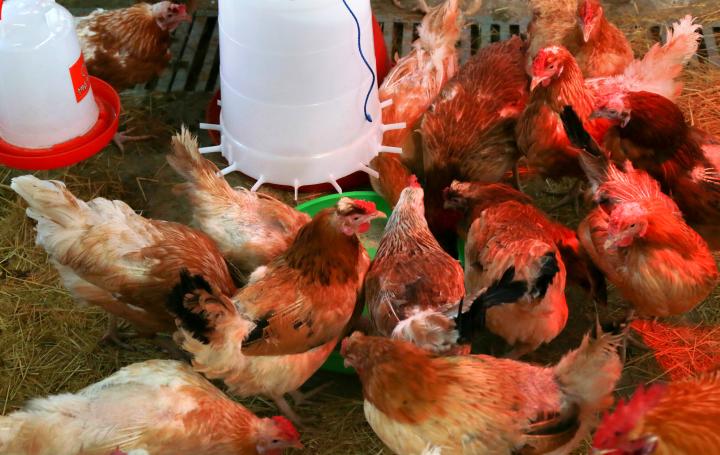Emissions recycling paves way to sustainable feedstuffs
A single-cell protein for fish and poultry feed developed from industrial CO2 could transform food production systems.
Carbon dioxide from industrial emissions could be used to sustainably produce proteins for fish and animal feeds in the UK, under a new initiative.
The project, known as REACT-FIRST, involves a consortium of industry and academic partners, including researchers from the Global Academy for Agriculture and Food Security.
Those taking part hope to develop a UK source of protein for animal feed, to replace that currently imported from overseas. Their project is supported with £3 million funding from Innovate UK.
Protein generation

The initiative is led by carbon recycling biotechnology company Deep Branch, which has pioneered a process that uses microbes to convert carbon dioxide into high-value proteins for animal feed.
The project represents the UK’s first scalable route to the sustainable generation of protein using waste carbon dioxide from industrial emissions.
Partners will work towards production of a novel single-cell protein, called Proton™, produced by Deep Branch, which is used in fish and poultry feed.
Also involved from industry are Drax, the energy producer, feed producers BioMar and AB Agri, the supermarket Sainsbury’s, and the Scottish Aquaculture Innovation Centre (SAIC).
Researchers from the University of Edinburgh’s Global Academy of Agriculture and Food Security and Innogen are involved in the project, along with collaborators from the University of Nottingham, Nottingham Trent, and Stirling.
The Edinburgh researchers will assessing the economic, societal and environmental benefits of the novel protein, and support the wider project in responsible development and engaging with stakeholders.
The University’s participants are both involved in research and teaching programmes in the Global Academy of Agriculture and Food Security.
REACT-FIRST is an exciting opportunity for Innogen to work with organisations throughout the animal-feed value chain to maximise the benefits of Proton™ and increase the sustainability of animal-protein production systems.
Innogen’s experience in supporting responsible innovation from a business point of view means we are ideally placed to enable REACT-FIRST to deliver and demonstrate a responsible innovation approach for Proton™ production and commercialisation, including consumer acceptance.

